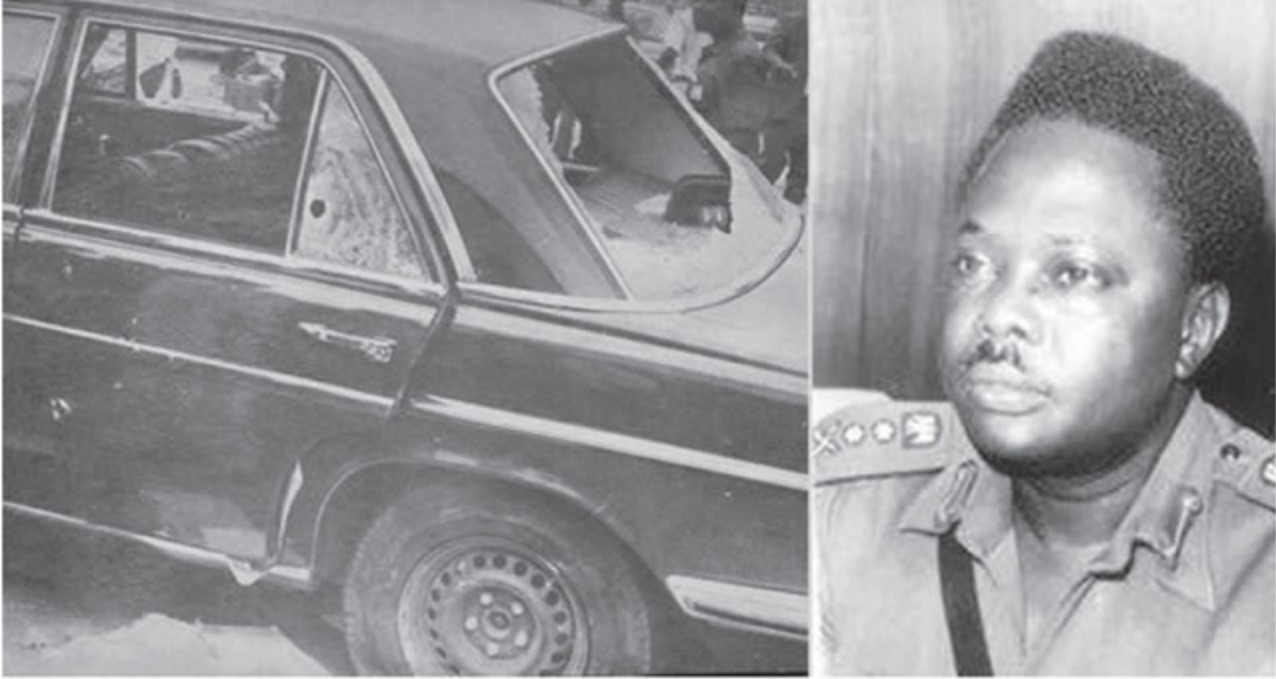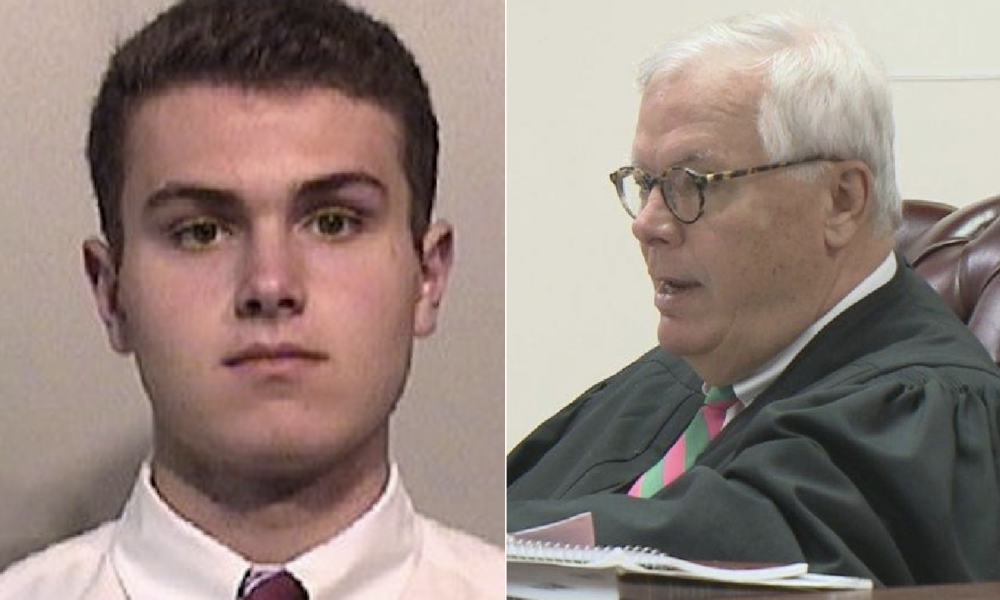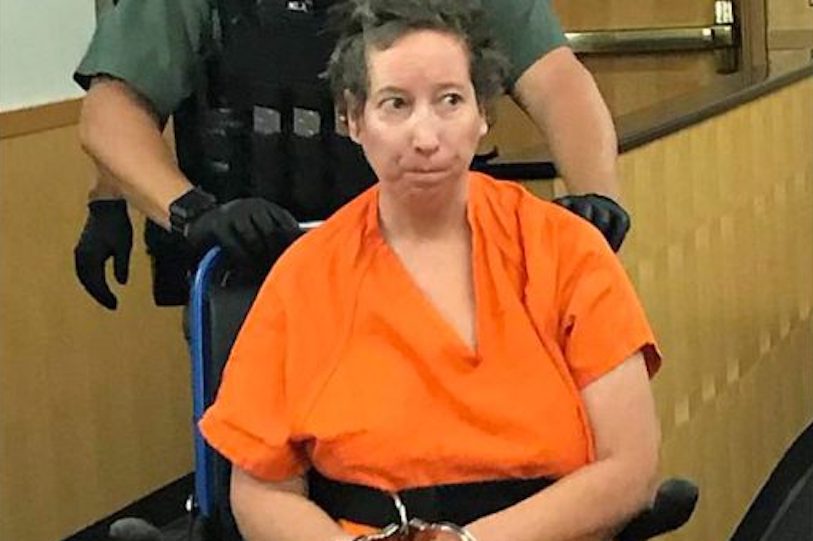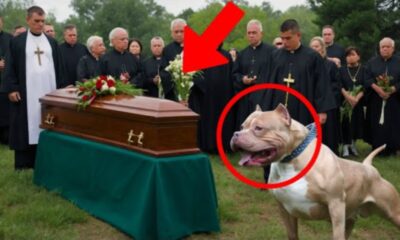On Friday, February 13, 1976, 43 years ago, the then military ruler, General Murtala Ramat Muhammed, was assassinated by a group of soldiers loyal to Lt Col Buka Dimka shortly after 8am. Muhammed had set off for work in his Mercedes Benz and was in traffic near the federal secretariat at Ikoyi in Lagos when the soldiers reportedly emerged from an adjacent petrol station and shot him dead. He was killed along with his aide-de-camp, Lieutenant Akintunde Akinsehinwa…Click Here To Continue Reading>> …Click Here To Continue Reading>>
His assassination was part of a coup attempt led by Dimka, who was the head of the Nigerian Army Physical Training Corps. His death was said to have led to a state of pandemonium. In Lagos, people reportedly chose to stay indoors for fear of being caught in gunfire that could break out between troops loyal to the late ruler and those loyal to Dimka.
Dimka went to the premises of Radio Nigeria at Ikoyi, where he made a broadcast to the nation. In the broadcast, he cited corruption, indecision, arrest and detention without trial, weakness on the part of the Head of State and maladministration in general as the reasons for his actions. Troops loyal to the Federal Government then attempted to take control of the radio station from the coup plotters and Dimka was said to have narrowly escaped from the gunfire.
The station was later recaptured by troops loyal to the Federal Government. Dimka was eventually arrested in Eastern Nigeria. He and 38 military officers and civilians were found guilty following a court martial and executed by firing squad.
Muhammed was military ruler for less than a year as he had only assumed the position on July 30, 1975, about 200 days earlier, when he was made head of state after General Yakubu Gowon was overthrown while at an Organisation of African Unity summit in Kampala, Uganda. Subsequently, Olusegun Obasanjo and Theophilus Danjuma, both brigadiers at the time, were appointed as Chief of Staff, Supreme Headquarters and Chief of Army Staff respectively.
Alhaji Ibrahim Ramat, the younger brother of the late Head of State, Muhammed, in this interview with TED ODOGWU, recalls how the news of the assassination of his elder brother made the family sad
Murtala Muhammed, a former military Head of State, was killed in Lagos traffic, while on his way to Dodan Barracks on February 13, 1976. What do you remember about that fateful day?
That fateful day shocked me and the entire family members of the late General Murtala Muhammed, including his brothers. The day my elder brother was killed will remain an unforgettable day. It was indeed unfortunate. Ever since that time, we have been praying, asking the Almighty God to receive his gentle soul, to enable him to rest in peace.
Do you recall what the general mood was like in the country after the incident?
I went out on that day and saw people running in different directions, searching for where to take cover as they believed that war had broken out. That did not only happen in Kano; all Nigerians were shocked at the sad incident. The late Murtala Muhammed was not only talented, he was also an asset to Nigeria. He contributed immensely to the growth and development of the country. He fought with his last blood to ensure that Nigeria remained an indivisible country. The country is great today, thanks to the late Murtala Muhammed, who fought to ensure the peace, unity and stability of the country. He was instrumental to the relocation of the Federal Capital Territory to Abuja. If not for Murtala Muhammed, who fought to ensure that there was peace and unity in the country, there wouldn’t have been a conducive environment for politics to thrive, which the country is currently enjoying. It was through his courage, forthrightness and commitment that the country has remained politically stable. I am proud that a blood brother of mine contributed to the growth and development of the country. Forty-three years after the death of General Murtala Muhammed, I am happy that Nigerians have not forgotten him, and that the country remembers him and marks the anniversary of his death every February 13, as if he died yesterday.
It was until the following day that his death was announced. Do you think it was an attempt to hold back the information or he didn’t die on the spot?
Well, what the people were saying was that it was a coup attempt. It was planned to kill him and God accepted their plan; that was why they succeeded. However, there is life hereafter and by God’s grace, the matter would be judged where we would all meet to part no more.
The Dimka-led coup that cost Murtala Muhammed his life was not the first in Nigeria’s political history, as there had been coups in January and July 1966, but that coup appeared to have been unpopular. In your view, why was it different from the others?
You know that God does not like cheating. Eventually, there would be divine retribution. That is the reason why the coup that cost Murtala Muhammed his life cannot be compared with the other ones. He believed in equity and justice for all. He believed in ‘what is sauce for the goose is sauce for the gander’. He was a gallant soldier, as well as a giant of Africa, who believed in sincerity and straightforwardness.
He spent less than a year in office – about 201 days – but he appeared to be very popular among the people, considering how he is being honoured and remembered till today. What kind of leader was he?
He is being honoured today every year, mainly because of the good legacies he left behind, as a reputable man of honour and reverence. He believed in the truth and nothing but the truth! He was very firm and often stood by truth and equal justice for all.
Before he became Head of State, what kind of officer was he or did he have any antecedents that could have foretold that he would one day occupy that office?
Muhammed was initially a brigadier and later he was announced as the head of state. When he was young, his body language had always said that sometime in future, he would emerge as the head of state. In his prime, he was always very active, independent and often displayed the spirit of courage and firmness.
People often describe him as a fine gentleman, but for him to have championed the coup that ousted Gowon when he was in power shows that he was also a typical military officer. Do you think he was pushed because the assumption is that fine officers don’t plan coup?
I do not have any idea of that scenario because I am a politician and not a military man. That question is meant for soldiers and certainly not for someone like me, who is a politician.
People tend to downplay the fact that he also ousted another officer (Yakubu Gowon) to become the head of state. Why do you think people overlook that?
I do not have any answer to that question, as I earlier told you, I am a politician and not a soldier.
Sometimes, when there is a coup, the leader is killed. Do you think Gowon would have been killed if he were in the country at that time?
Also, I do not have an idea as to whether Gowon would have been killed if he was in the country at that time, as I am not a soldier but rather a politician.
Murtala Muhammed’s assassination was considered as quite easy, as he was killed in traffic, with only his orderly, armed with a pistol in the Mercedes Benz car he was when he was killed. Would you say he was always that simple?

I do not have an answer to that question because I was not with him at that time, as my only relationship with him was that I was his younger brother. Besides, he was assassinated in Lagos, while I was in Kano, so I am not in a position to recall what transpired at that time.
And was that simplicity his undoing?
You should be aware that anybody who fears God would not be afraid of anything. Murtala Muhammed was a devout Muslim, who was always prayerful. To this end, he was not afraid of the unknown, as he surrendered his fate and destiny to God, which was partly responsible for his simplicity.
Can we say that he could have been saved if he had the normal convoy of armed escorts or the coup plotters would still have had their way?
Maybe he would have been saved as the present crop of leaders always move about in convoy, with their armed escorts. Unfortunately, Murtala, as Head of State, was neither with any convoy nor armed escorts at the time he was killed. He was only with his orderly, who was armed with a pistol. Who knows what would have happened if he had been in company with security operatives. But don’t also forget that as a Muslim, anything that God wants, at the time he wants it to happen, will definitely happen, no matter the circumstances. By the grace of God, Murtala would continue to rest in peace.
Was it considered strange at the time that a military Head of State would be in traffic in Lagos, with no serious security detail with him?
I could recall that as a child, not more than 15 to 16 years old and during every holiday, I used to visit my elder brother, the late Head of State, General Murtala Muhammed. I can remember that at the time, his way of life and conducts were very different from how others behaved. As I earlier told you, what I can categorically say, without fear of contradiction, is that the late General Murtala Muhammed was a devout Muslim. He was also a fearless and gallant soldier who was not afraid of anybody.
Obasanjo’s regime later captured Dimka and himself and his cohorts were sentenced to firing squad. Do you think Dimka would have regretted his action, especially, as he didn’t succeed in taking over government?
I do not know if Dimka regretted his actions or not.
From historical perspective, do you agree with the belief that Murtala Muhammed enjoyed the cleanest legacy of any Nigerian military leader?
As I earlier told you, Murtala was a straightforward and fearless soldier, who only spoke the truth. That was what I noticed about his character and way of life while I was growing up as a child. READ FULL STORY HERE>>>CLICK HERE TO CONTINUE READING>>>
There was a rumour that the US Central Intelligence Agency had a hand in Murtala Muhammed’s death. What do you think was responsible for this notion?
I do not know if the US CIA had a hand in Murtala’s death, as I am not an international analyst to determine or insinuate that theory.
How did Nigerians and the Nigerian Government react to this rumour?
As I earlier told you, the Nigerian government and the people of the country were indescribably worried about the assassination of Murtala Muhammed. People were weeping and shedding tears of sorrow and agony because of the worrisome development.
In Murtala Muhammed’s 201 days in office, what actions defined his government and what kind of reforms did he introduce in Government?
First, the local government reforms were introduced by the late Murtala Muhammed. The relocation of the seat of power from Lagos to Abuja was initiated by him. Also, during his administration, he rejected the imposition of taxes, and also stopped the practice by Nigerians to be buying water, which he made free for all Nigerians.
He created seven states and initiated plans to build a new capital, following the over congestion of Lagos. How did Nigerians react to the development at that time?
Nigerians were overwhelmed with joy and excitement after Murtala Muhammed announced that the federal capital would be relocated to Abuja. They were confident and satisfied with his sense of judgment.
Some reports say that when Obasanjo handed over power to a civilian government in 1979, he was fulfilling Mohammed’s plan. How true is this notion? Was it Mohammed’s idea to hand over power to a civilian government later?
Yes, exactly, that was the plan. I am sure of that action. When General Obasanjo assumed power, he was quoted as saying that he would implement all the promises made by late General Murtala Muhammed to hand over power to the political class, which was what informed Obasanjo’s move to hand over power to civilians in 1979.
If true, was the motive behind the coup that brought your brother to power about returning Nigeria to a democratic government?
No sooner had the late General Murtala Muhammed taken over power than he promised Nigerians that at a particular time, he would hand over power (to someone else). However, he did not hand over to the political class until after his death that Obasanjo fulfilled the promise of handing over power to a civilian government.
Even as a northerner, he was said to have cancelled the 1973 census, which was alleged to have heavily favoured the North. Do you know what really happened?
I have no idea of what informed my late brother’s decision to cancel the 1973 census.
At the time Murtala Muhammed was killed, Nigeria was hosting an international tennis competition and some foreign sports men were in the country, including the famous ex-footballer, Pele; did the situation lead to panic in the international community?
No, it certainly did not tarnish the image of Nigeria in the international community. Rather, members of the international community were sad about the assassination of General Murtala Muhammed.
Your brother was believed to have played a major role in the counter-coup of July 1966, following pressure on northerners on people like him in the military. Can he be described as tribalistic, like many Nigerians?
Murtala Muhammed was a detribalised military officer, who believed in the unity, peaceful co-existence, as well as the stability of Nigeria as a single entity.
What was the motive behind the coup that brought Murtala Muhammed to power, which deposed General Gowon?
During the tenure of Yakubu Gowon, he made several promises to Nigerians to hand over power to the political class, which he never fulfilled. Murtala Muhammed was uncomfortable with his antecedents, which was part of what informed his decision to topple Gowon’s regime, so as to hand over power to a civilian government at a specific time.
Was the motive behind the coup by Col Buka Dimka, which led to the death of Murtala Muhammed, about the tribal issues in the country or strictly about hijacking power?
I do not have an idea behind Dimka’s motive to stage the coup.
Murtala Muhammed was an active player in the Nigerian Civil War, during which he was alleged to have ordered the summary execution of Biafran prisoners of war, generally known as Asaba Massacre and the people of Asaba may not forgive him in a hurry. What does history have to say about this?
I have no idea of what history will say about the massacre.
His loudest critics always refer to the alleged Asaba massacre when they talk about Muhammed today. Going by history, do you think they are justified?
I do not have an idea of that.
If Muhammed had not been killed prematurely, how do you think his government would have been?
If Murtala Muhammed had not been killed, Nigeria would have been a lot more stabilised and organised than the state it is currently. Most of the hardship Nigerians are currently grappling with would never have been there. As I earlier told you, Murtala was an upright man and a firm soldier, who obeyed law and order. His mission was to pilot Nigeria to the next level of economic development and prosperity, which had never been witnessed in the history of the country. He started doing this when he took over power but it was botched following his brutal assassination by Dimka.
Some people believe that he would have transformed the country if he had spent more time in power, did it look like that?
If Murtala had spent more time in power, he would have economically transformed the country beyond what we have today.
Can we say the way he was killed influenced how political office holders today now have many vehicles, with armed security agents in their convoy?
Many politicians of today have learnt a great lesson from Murtala Muhammed’s mistake, which cost him his life, as they now move about town with heavily armed escorts. That is why the current politicians do not toy with their security as they move about town with heavily armed security guards to ward off any unforeseen attacks by enemies of progress.
Do you think the Nigerian government has done enough for the family members of the late General Murtala Muhammed?
No, the government has indeed abandoned the family members of the late General Murtala Muhammed, as no government official has in the last 10 years visited his mother’s home located at the back of Kurawa Central Prison, Kano. The home is already dilapidated, with poor drainage system. The condition of the only toilet within the building has deteriorated and his younger brother and his immediate family members go here and there when they need to use toilets.
What in your opinion has the government not done for the family members of the late Murtala Muhammed, which they have been extending to other late Head of State’s family members?
The truth is that the family members of the late General Murtala Muhammed have been completely abandoned, as there is no security presence in his home, where he used to stay whenever he visited Kano. There is security presence at the residence of the late General Sani Abacha. The late Murtala Muhammed was a superior officer to both the late General Abacha and President Muhammadu Buhari, who is currently in power. President Buhari should do something about the current hardship the family members of Murtala Muhammed are facing. When Murtala was alive, Buhari, Ibrahim Babangida and the late Abacha used to visit his mother at the back Kano Central Prison.




















